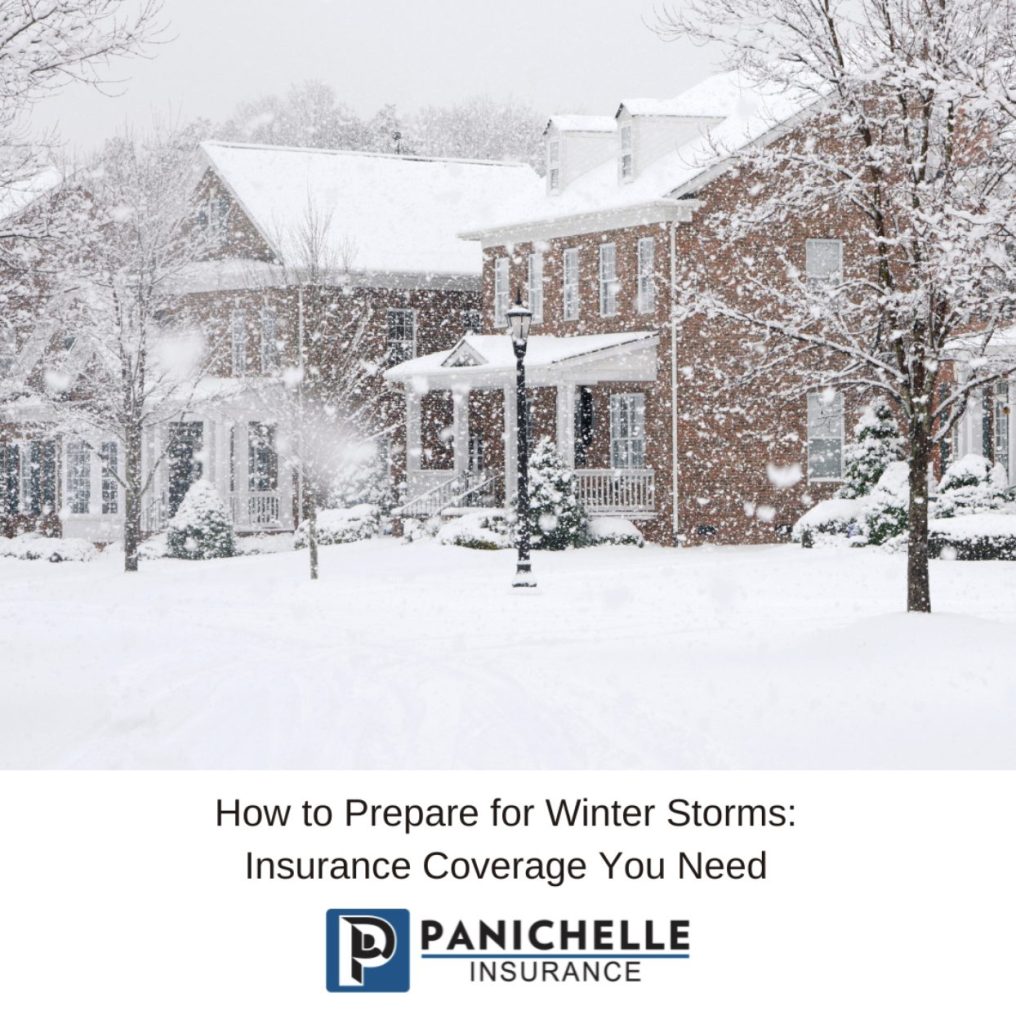As winter approaches, homeowners and business owners alike need to prepare for more than just icy sidewalks and frigid temperatures. Winter storms can bring snow, sleet, ice, and high winds that cause significant property damage, disrupt daily routines, and put financial strain on families and businesses. While stocking up on essentials like food, water, and batteries is important, ensuring you have the right insurance coverage is just as critical.
Here’s a closer look at the types of insurance protection you should have in place before winter weather strikes—and why preparing ahead can save you from costly headaches down the road.
Homeowners Insurance and Winter Storms
Most standard homeowners insurance policies cover damage caused by common winter storm perils, but it’s important to understand exactly what’s included.
Covered Perils Typically Include:
- Weight of snow and ice: If your roof caves in or your gutters are damaged due to heavy accumulation, this is often covered.
- Falling objects: If a tree limb snaps under the weight of ice and damages your home, homeowners insurance generally applies.
- Burst pipes: Frozen pipes that burst and cause water damage are usually covered, though prevention (such as properly insulating pipes) is expected.
- Wind damage: High winds that rip off shingles or siding are often covered under standard policies.
What May Not Be Covered:
- Flooding from melting snow or ice: Standard homeowners insurance does not cover flood damage. For this protection, you’ll need a separate flood insurance policy.
- Negligence-related damage: If insurers determine you failed to take reasonable steps—like clearing snow from a weak roof or insulating pipes—they may deny claims.
Tip: Review your homeowners policy annually to confirm coverage amounts and ensure your dwelling and personal property limits are sufficient.
Auto Insurance Considerations
Winter driving can be treacherous, and insurance plays a big role in protecting you financially.
- Collision Coverage: Covers your vehicle if you slide on ice and hit another car or object.
- Comprehensive Coverage: Protects against non-collision incidents like falling ice, hail, or a tree limb damaging your car.
- Uninsured/Underinsured Motorist Coverage: Critical if you’re hit by someone without adequate insurance, which can be common during bad weather accidents.
If you only carry liability insurance, you may want to consider adding comprehensive and collision before winter sets in.
Renters Insurance
If you’re a renter, don’t assume your landlord’s insurance policy covers your personal belongings—it doesn’t. Renters insurance is affordable and protects your possessions against covered perils like fire, water damage from burst pipes, or damage from falling trees. It also provides liability coverage in case someone slips and falls in your rental unit during icy conditions.
Business Insurance and Winter Risks
For business owners, winter storms can create both physical and financial risks. Commercial property insurance generally covers building and contents damage due to snow, ice, or wind. However, you should also consider:
- Business Interruption Insurance: Helps cover lost income if your business must close due to storm damage.
- Commercial Auto Coverage: Ensures your company vehicles are protected against ice-related collisions or storm damage.
- Liability Coverage: Protects you if someone slips and falls on your property due to icy walkways.
Given that severe weather can halt operations for days, having the right business insurance in place can make the difference between a quick recovery and long-term financial hardship.
Winter Preparedness Beyond Insurance
Insurance is only part of the equation—prevention matters too. Here are practical steps to reduce risks and keep your home or business safe during winter storms:
- Insulate pipes and know how to shut off your water supply in case of freezing.
- Keep roofs, gutters, and downspouts clear of debris to avoid ice dams.
- Trim trees near your home or business to minimize the risk of falling branches.
- Maintain a safe property by shoveling and salting walkways promptly.
- Keep an emergency kit with flashlights, batteries, blankets, and non-perishable food.
The Importance of Reviewing Coverage Before Winter
Winter storms can arrive suddenly, leaving little time to react. By reviewing your policies now, you’ll gain peace of mind knowing you’re financially protected. Talk to your insurance agent to:
- Verify deductibles and coverage limits.
- Add endorsements or additional policies if necessary (like flood or umbrella coverage).
- Ensure your policy reflects current home or property values.
Winter storms are unpredictable, but your insurance coverage doesn’t have to be. By making sure your homeowners, auto, renters, or business insurance policies are up to date and tailored to your risks, you’ll be better prepared for whatever the season brings. With the right protection in place, you can focus less on financial “what-ifs” and more on enjoying the beauty and quiet of winter.

